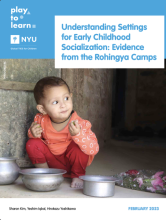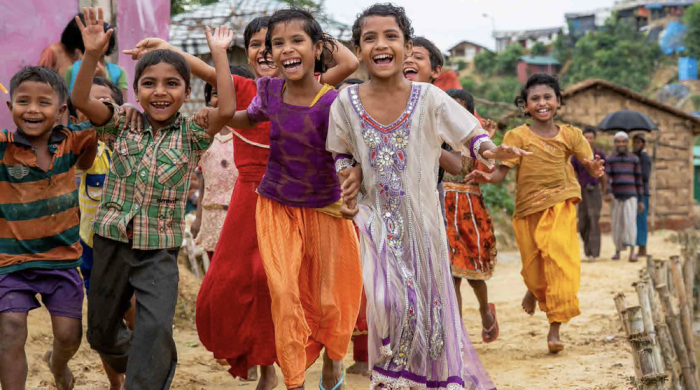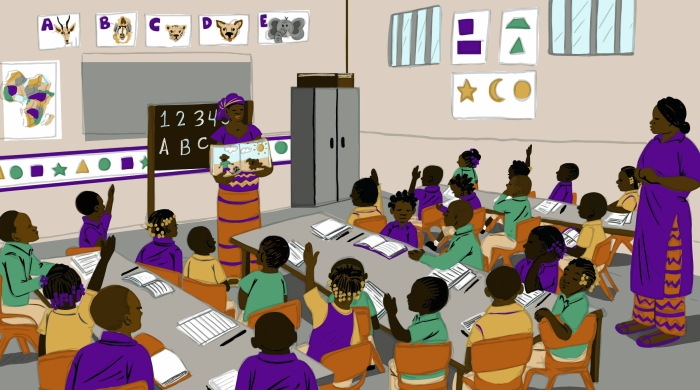
NYU Global TIES for Children (NYU-TIES), an international research center embedded within NYU’s Institute of Human Development and Social Change (IHDSC), has launched their sixth research brief, Understanding Settings for Early Childhood Socialization: Evidence from the Rohingya Camps, from their Play to Learn (PtL) program.
In the brief, Global TIES researchers demonstrate the utility of rapid ethnography to understand the socialization context of Rohingya children living in Cox’s Bazar Camps, where factors such as economic instability, natural disasters, and the Covid-19 pandemic have continued to change the individual- and family-level environment for Rohingya communities. Results from rapid ethonographic data in conjunction with in-depth parent interviews highlight several key elements contributing to the socialization of young Rohingya refugee children, including: 1) supervision and care of children often extending beyond biological parents and immediate family; 2) agents of socialization and learning extending beyond biological parents and immediate family; 3) parents considering spaces near or around their homes to be unsafe, while children’s behavior indicate otherwise; 4) learning “pockets” or humanitarian play labs (HPLs) within household clusters providing unique opportunities for children to learn and play; and 5) HPL children having access to artifacts for socialization beyond improvised objects from the immediate surroundings.
Play to Learn reaches families in affected areas through educational media and direct services in homes and play spaces to provide the essential building blocks of play-based learning and nurturing care. The program aims to establish play-based early childhood development as an essential component of humanitarian response for all children and caregivers affected by crisis. Play to Learn is an innovative program from NYU-TIES, the LEGO Foundation, Sesame Workshop, BRAC, and the International Rescue Committee that harnesses the power of play to deliver critical early learning opportunities to children and caregivers affected by conflict and crisis.
For more information about the Play to Learn project and Global TIES for Children, and to access the other research briefs in this series, visit the NYU Global TIES Play to Learn page.




